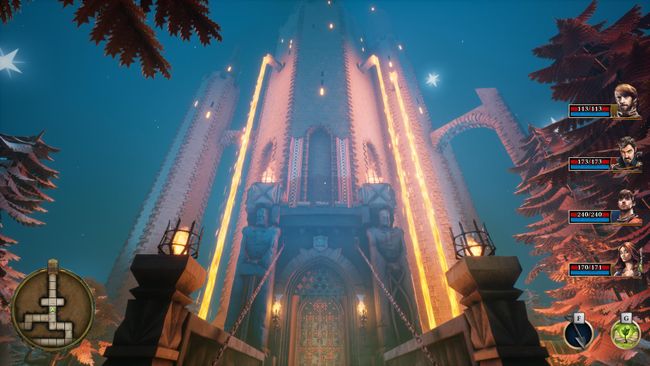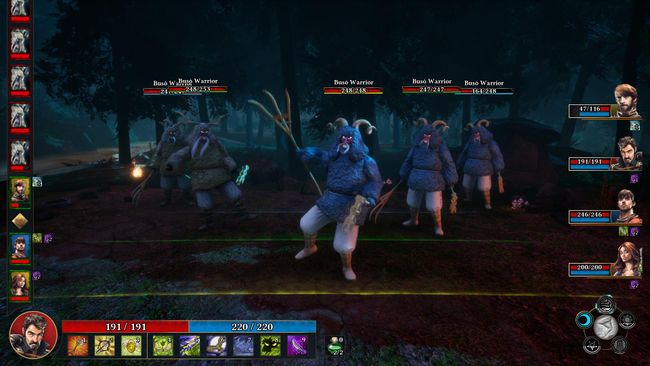Operencia: The Stolen Sun review
Some of the Hungarian words Operencia has taught me to pronounce include táltos (a kind of shaman) and Napkirály (the king of the sun). I also learned that Hungarian children are told spooky bogeyman stories about an owl with a copper penis. It’s been an education.

Zen Studios is a Budapest-based team better known for making pinball games than fantasy RPGs. Their first foray into the genre draws from Hungarian mythology, giving it a mix of oddity and familiarity—fairytale stuff like magic beanstalks and cursed castles alongside capering busós who wear demonic masks with droopy moustaches.
Operencia is a dungeon-crawler, first-person and played on a grid like the old Wizardry games. It’s the kind of thing people on the internet apparently call “blobbers” because you control a party that moves as a single inseparable unit, one big blob of archers, thieves, and wizards, only here one of those wizards is a táltos and the other is a fallen star in human form.
Combat in Operencia is turn-based, with enemies lined up in three different range bands. My hunter opens with a headshot targeting someone in the back row before my thief drops asphyxiating poison on the whole bunch, the magic stonemason summons a protector, and the knight chooses a taunt that also covers him in damaging thorns. Like everything in Operencia it’s a mix of the surprising and the expected—sometimes I’m fighting beasts out of central European folklore, sometimes it’s skeletons again.

Fights occasionally drag, especially against “spawners” who have a random chance to come back from the dead. When the same two guys resurrect three times in one fight, or spiders eat their wounded allies to gain a hundred hit points and double in size, it becomes an accountancy test instead of a thrilling battle. You spent all those energy points on using your cool abilities straight away? Well, the fight’s going to go for twice as long as you expected, hope you budgeted for this eventuality! Now sign these forms in triplicate.
You know what’s fun, though? Brewing potions by solving logic puzzles. I am 100 percent serious about this. If you enjoyed solving the Jindosh Lock in Dishonored 2 or any part of Return of the Obra-Dinn you will like following recipes in Operencia. “The ingredient from the field cannot be a crop,” one might say, “while the one from the mountain cannot be poisonous.” You arrange icons representing the different qualities of various fungi and roots, making deductions to fill the gaps, then suddenly you’ve got a brew that removes damage-over-time effects.




